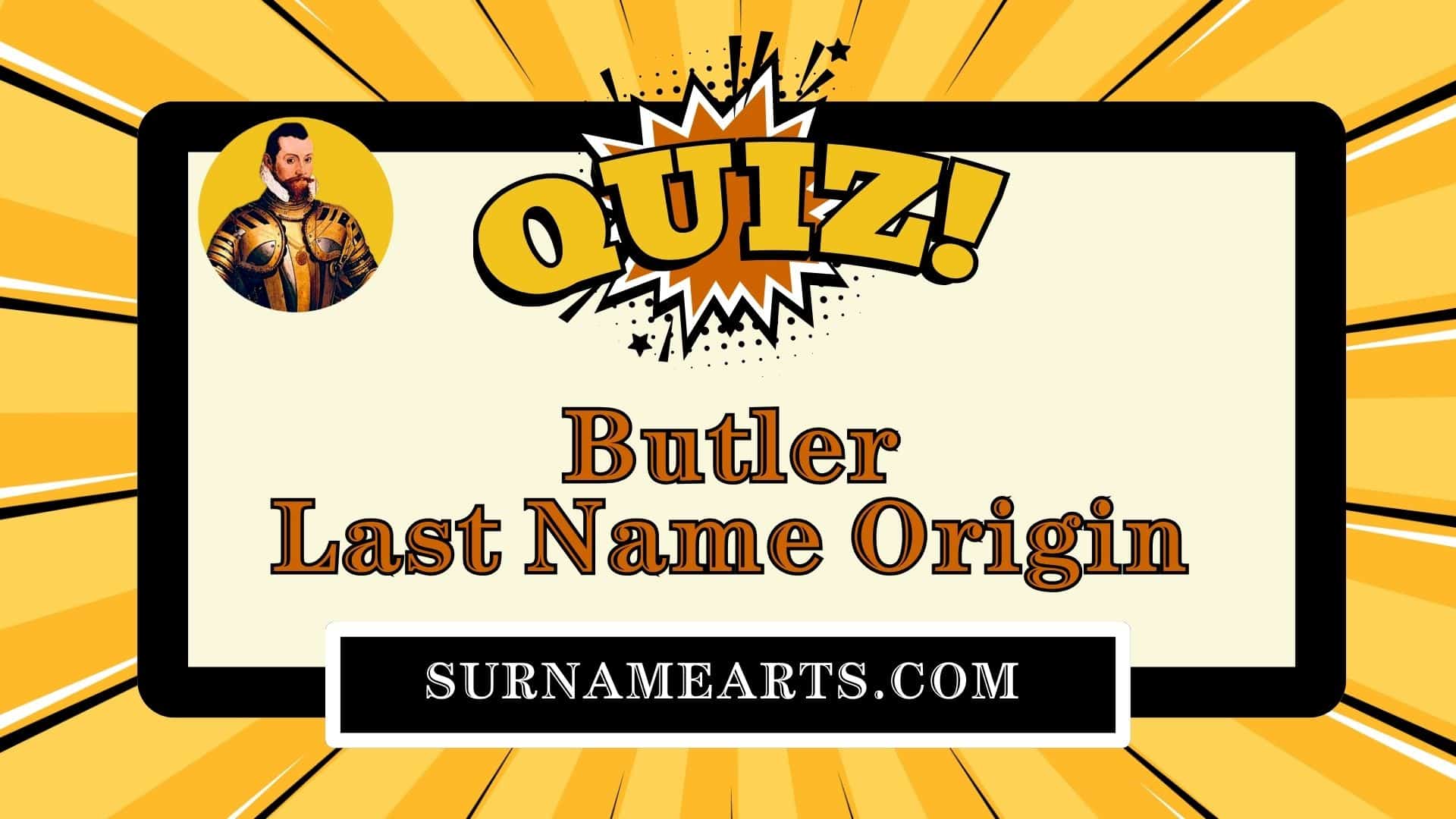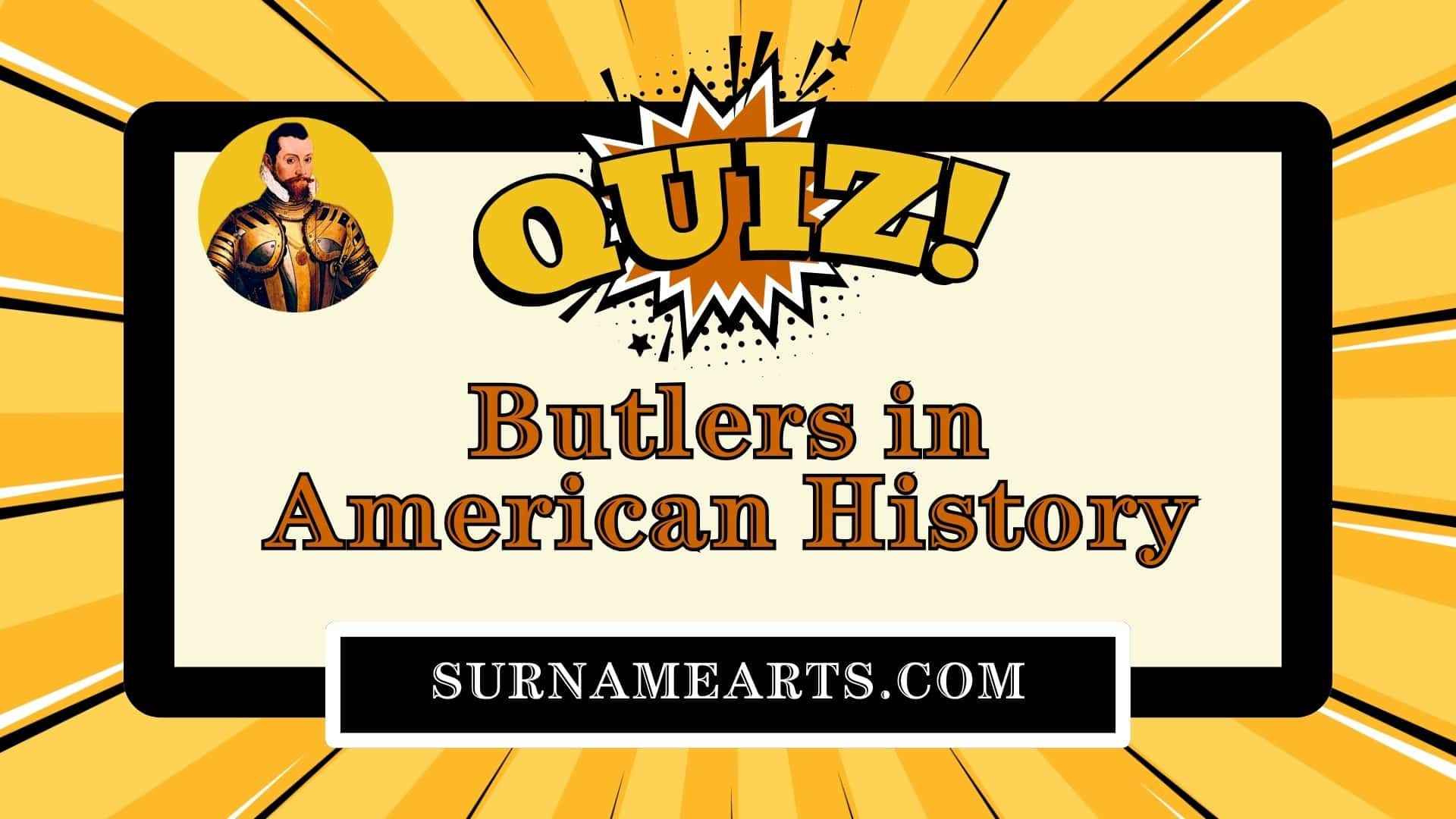
The Butler family has been an integral part of America since the 1500s. Some people with the Butler last name came seeking exile from religious and political persecution. Many came seeking a life of economic stability and prosperity. Others came merely seeking adventure. Whatever the reason, people with the Butler surname have made an indelible mark on the country. Today, about 70% of people with the last name Butler live in the United States.
While it would be virtually impossible to discuss every Butler’s contribution to the country, a few early Butler family members stand out and should be remembered because they shaped America for better or worse.
Richard Butler: The First Butler in America

Richard Butler, from County Tipperary in Ireland, is believed to be the first Butler family member to step foot on American soil. He was a page-boy on Raleigh’s expedition to Virginia, led by Captain Philip Amadas and Master Arthur Barlowe in 1584, which was authorized and financed by another Butler family member, Queen Elizabeth I.
According to Richard’s written account, his expedition landed near present-day Ocracoke Island or, according to some historians, present-day Oregon Inlet, in July of 1584. After anchoring, they went ashore in boats to view and take possession of the land for Queen Elizabeth. After about six weeks of exploring, Richard returned to England.
Thomas Butler: A Member of “The Lost Colony”

Approximately three years after Richard, the second Butler family member reached America in 1587.
Thomas Butler was part of a group of 150 men, women, and children tasked with colonizing the City of Raleigh in the Chesapeake Bay area.
It’s unknown whether Thomas was related to Richard Butler, but he was likely enticed on the trip by Sir Walter Raleigh’s generous promise of a minimum of 500 acres of land in the New World.
Unfortunately, this group became known as “The Lost Colony” because it disappeared without explanation. There has never been enough archaeological evidence to solve the mystery.
Captain Nathaniel Butler: Introduced the Potato to North America

Captain Nathaniel Butler (c. 1577-unknown) made several critical contributions to both Bermuda and the land that would become America.
Nathaniel was an English privateer and the third Governor of Bermuda. He built many structures that can still be seen today, including the State House in St. George’s Parish, the oldest surviving English settlement in the New World.
After leaving Bermuda, Nathaniel made his way to Jamestown, Virginia, where he did something that forever changed the American way of life: in 1621, he introduced the potato to North America. That’s right. A Butler is responsible for boiled potatoes, mashed potatoes, baked potatoes, fried potatoes, all forms of potatoes.
Following a short stay in Jamestown, Nathaniel wrote a report titled The Unmasked Face of Our Colony in Virginia as it was in the Winter of the Year 1622 and returned to England to present it to the King. It was an important work chronicling the poor condition of the colony and changed England’s approach to its management.
Pierce Butler: A Founding Father of the United States

Pierce Butler (1744-1822) was born in County Carlow, Ireland, the third son of Sir Richard Butler, 5th Baronet of Cloughgrenan.
As the third son, he wasn’t going to inherit his father’s estate or title, so he joined the British Army at the age of 11. By age 14, he was a full lieutenant and commanded troops against the French in North America. He went to South Carolina as a member of the British Army but resigned in 1773 to join the American cause.
After the Revolutionary War, Pierce became a politician. He was elected to the United States Senate from South Carolina for three terms. On September 17, 1787, Pierce Butler, representing the state of South Carolina, became a founding father of America when he signed the United States Constitution at Independence Hall in Philadelphia, Pennsylvania. He was one of only 39 men to have that honor.
William Orlando Butler: Candidate for U.S. Vice President

William Orlando Butler (1791-1880), the son of Percival Butler, one of The Fighting Butlers, was born in Jessamine County, Kentucky, and graduated from Transylvania University In Lexington.
When the War of 1812 broke out, he joined up as a private to fight against the British and Indians. During the Battle of the Thames, he volunteered to start a fire in an enemy-held barn. This brave act earned William the rank of Colonel. He later assisted Andrew Jackson at the Battle of New Orleans and was second-in-command to Zachary Taylor at the Battle of Monterrey.
After the war, William served in the Kentucky House of Representatives and, from 1839 to 1843, in the United States House of Representatives.
In 1848, he ran for vice president of the United States as a Democrat, with Lewis Cass at the top of the ticket. Cass and William lost the general election to Whig candidates Zachary Taylor and Millard Fillmore.
Later in his life, William turned down an offer to become governor of the Nebraska Territory and worked with the Peace Conference of 1861 in an effort to stop the secession crisis. He wrote the book The Boatman’s Horn, and Other Poems in his spare time.
Butler County, Iowa; Butler County, Missouri; Butler, Missouri in Bates County; Butler, Kentucky; Butler, Georgia; Butler Township, Pennsylvania; and General Butler State Resort Park are all named after William Orlando Butler.
Andrew Butler: Helped Establish the States of Kansas and Nebraska

Andrew Butler (1796-1857) was the second Butler family member to serve as a U.S. Senator from South Carolina (founding father Pierce Butler was the first) and was the chairman of the Senate Judiciary Committee. Senator Dick Durbin would be his modern-day equivalent.
In 1854, he co-authored the Kansas-Nebraska Act with Stephen Douglas, a senator from Illinois. The Act was designed to allow the country to expand westward and create the territories of Kansas and Nebraska.
But there was a catch. In order to gain Southern support, it repealed the Compromise of 1820, which outlawed slavery in those territories, by allowing the residents of Kansas and Nebraska the right to choose whether or not to allow slavery.
The Act was passed by the 33rd United States Congress and signed into law by President Franklin Pierce. So, a Butler helped establish what eventually became the states of Kansas and Nebraska.
Butler County, Kansas, is named for Andrew Butler. His brother, William Butler (1790-1850), and his nephew, Matthew Calbraith Butler (1836-1909), also represented South Carolina as members of the United States Congress. Another brother, Pierce Mason Butler (1798-1847), was a Governor of South Carolina.
Ovid Butler: Founder of Butler University

Ovid Butler (1801-1881) was an attorney, a newspaper publisher, and abolitionist. But, his main contribution was Butler University in Indianapolis, Indiana.
Ovid was a devout Christian and wanted to establish a university for the Christian movement. His vision became North Western Christian University in 1855.
After serving as the head of the school’s board of directors and its Chancellor, it was renamed Butler University in 1877. It was the first university in Indiana and the third in the United States to admit both men and women.
Benjamin Franklin Butler: Fought to End Slavery

Butlers fought on both sides of the Civil War (see an analysis of Butlers in the Civil War). Benjamin Franklin Butler (1818-1893), from Lowell, Massachusetts, was a major general in the Union Army. He was also a lawyer, a member of the U.S. House of Representatives, the Governor of Massachusetts, and even ran for President in 1884.
As a lawyer, he had the legal idea of freeing fugitive slaves by declaring them “contraband of war in service of military objectives.” This idea eventually led to the official war goals of emancipation and the end of slavery.
As a member of the U.S. House of Representatives, he led the impeachment of President Andrew Johnson. As the Chairman of the House Committee on Reconstruction, he was the author of the Ku Klux Klan Act of 1871 and co-authored the Civil Rights Act of 1875.
Despite his many accomplishments, Benjamin was a controversial figure in some circles. When the Union captured New Orleans during the Civil War, the city was occupied under his command. The ladies of New Orleans protested his occupation of their city by emptying chamber pots from upper floor windows onto the heads of union soldiers as they walked through the streets of the French Quarter. Benjamin responded by announcing that any woman found insulting union troops would be considered a prostitute and arrested. This didn’t sit particularly well with the citizens there, so they made and sold chamber pots with his picture on the bottom to show their displeasure.
Smedley Butler: One of the Most Decorated Marines in U.S. History

Smedley Butler (1881-1940), also known as “Old Gimlet Eye,” was a Major General in the United States Marine Corps. Over the course of 34 years, he fought in the Mexican Revolution, World War I, and was involved in battles in the Philippines, China, Central America, and the Caribbean.
When he died in 1940, he was the most decorated Marine in U.S. history. He received 16 medals, 5 of them for heroism. Smedley was one of only 19 men to receive the Medal of Honor twice. He is the only Marine to ever receive the Brevet Medal and two Medals of Honor, all for different actions.
Towards the end of his life, he wrote a book titled War is a Racket that criticized the motives and consequences of war, including the ones he fought in. Butler Aboo!
Primary Sources:
- Hogeback, J. (n.d.). The Lost Colony of Roanoke | Britannica. Encyclopedia Britannica.
- A Biography of Pierce Butler 1744-1822 < Biographies < American History From Revolution To Reconstruction and beyond. (n.d.).
- BUTLER, William Orlando | US House of Representatives: History, Art & Archives. (n.d.).
- Anderson, P. C. (2001, March 1). Butler, Andrew Pickens – South Carolina Encyclopedia.
- Marine Corps University > Research > Marine Corps History Division > Information for Units > Medal of Honor Recipients By Unit > Maj Smedley Darlington Butler(1st Award). (n.d.).
- Meet Your Ancestors: The Butlers (Documentary Film). Directed by Lane Sharah Butler, 2021.












